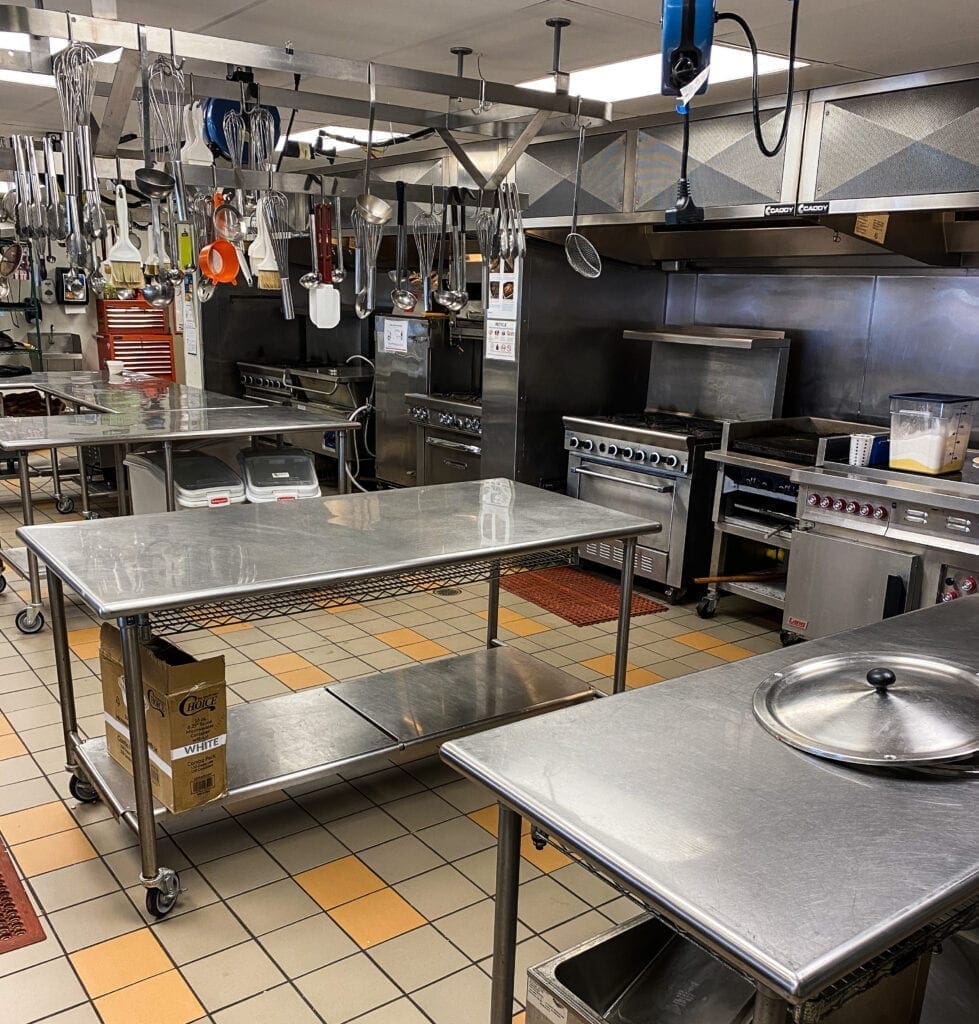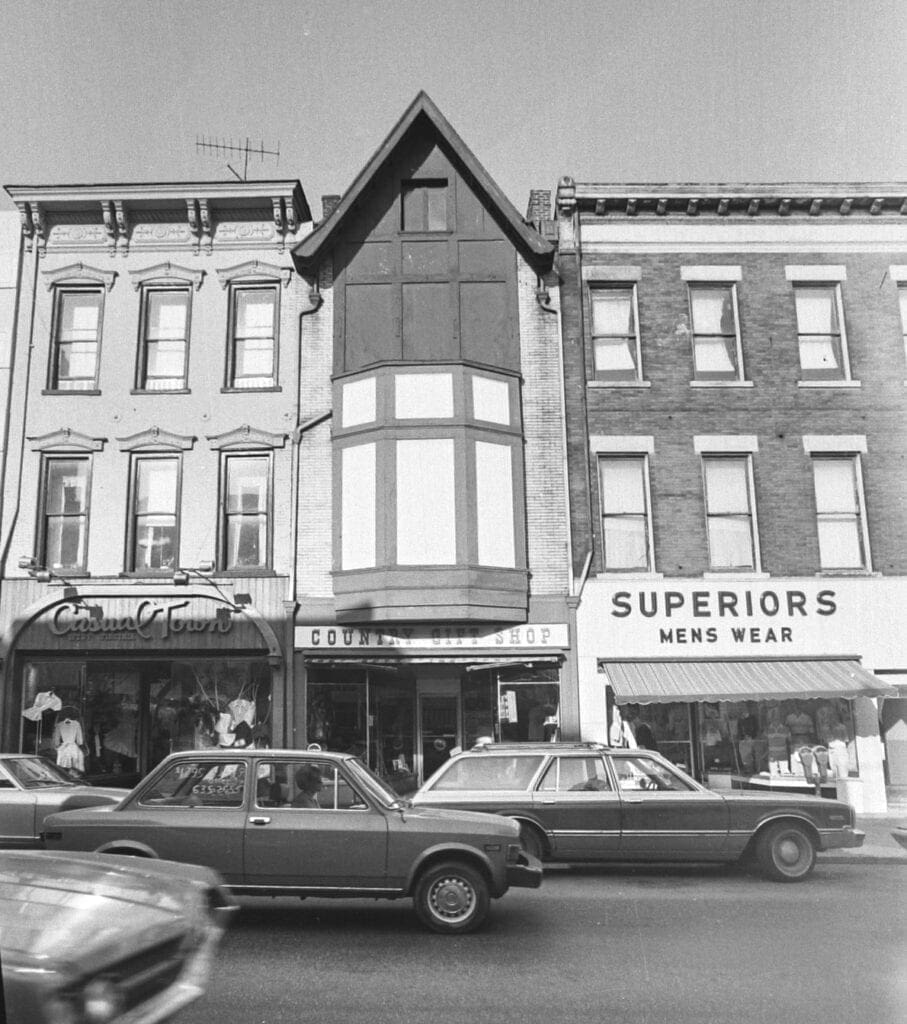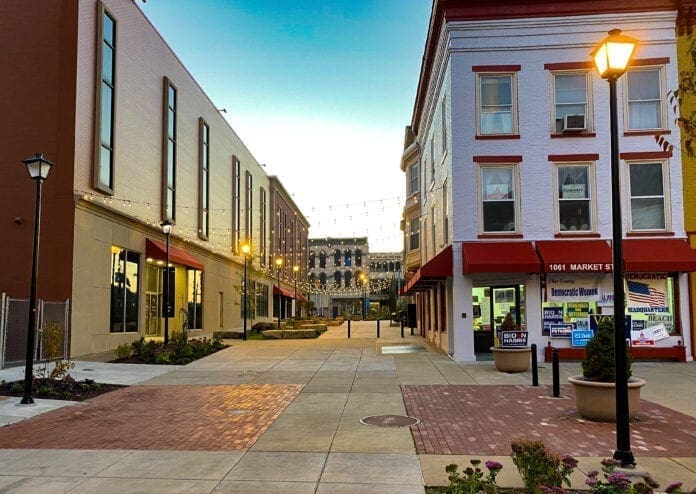It is referred to as the “Grandfather Clause,” it is loosely defined as, “OK until someone else owns it,” and it most often applies to state and federal regulations pertaining to the interior and exterior of property.
“It’s all about the crazy world of regulations,” said Kurt Zende, the president of the Wheeling Area Chamber of Commerce “because according to state and federal regulations, one day something like a sink is OK and then the next it’s not because a name changed on a deed. That’s crazy to me.
“The way it works is that if someone owns a property that is not upgraded, it’s OK because they are in a building the way they bought it, and that’s OK, I guess. They can die, and we don’t care, right? See, it just doesn’t make a lot of sense for the private-sector business community,” he explained. “But that’s why we have so much space in the city of Wheeling that is sitting empty and why the city lacks economic growth right now. People just think, ‘Well, that’s the way it is.’ Well, that’s why we are now below 27,000 residents, too.”
Zende is referring to the fact that once a new owner takes possession of a commercial or residential property, all up-to-date regulations pertaining to public safety and access must be followed. In Wheeling, employees of the city’s code office are in charge of enforcement.

“I understand in many cases the regulations are in the name of safety. I get that. But I know a business owner who was wanting to retire from food service, and he was selling,” Zende explained. “Now, the man wasn’t selling the location, just the business, but the new owner had to make several upgrades to the interior of the location that was based on regulations that didn’t apply to the former owner because he was grandfathered in. Those new upgrades cost about $5,000, one of which was to a sink.
“So, why was the two-basin sink OK for the former owner but not the new one? That just doesn’t make a lot of sense to me, and that $5,000 could have gone for something else,” he insisted. “Were those upgrades the difference between life or death? If the new sink didn’t have a third basin, was someone going to die? I seriously doubt it.”
When a new restaurant wishes to open, not only does the owner need to register it with the Office of the Secretary of State, but he or she also must obtain the appropriate business licenses and health permits from the city and county, respectively. Fire and health department officials need to sign off on the location after meticulous property inspections.
“But some of what we are doing to ourselves is ridiculous. I mean, a third basin in a sink? Listen; if someone gets sick in your restaurant, your restaurant likely is done because the private sector takes care of things like that,” Zende said. “But a third basin in a sink doesn’t mean that’s never going to happen, now does it? That’s an example of the ‘Nanny State,’ and that’s what we need to get away from, in my opinion.
“The same thing goes for a third-floor apartment,” he said. “I don’t want to see anyone die, but some regulations are just overkill. If you had fire alarms, and there is a second way out but no sprinkler system, why can’t someone be a third-floor tenant who signs a lease that states the individual will not hold the owner liable because they were paying discounted rent and decided to take that risk because of that lower rent? If a person signs off on it, it should be end-of-story, in my opinion.”

The Eight Ball
A search for synonyms for “historical” resulted in “classical” and “ancient” and, well, “old.”
And Wheeling is a very “historical” city that dates back to the Revolutionary War, but along with that history comes the age of infrastructure and the age of many of the buildings in the downtown district. But that fact, Zende believes, works against the effort to reinvent the Friendly City.
“I’m not blaming anyone. I’m just stating facts. The building stock in Wheeling is old. There is very little land that does not need to be reclaimed. We don’t have much of a workforce like the rest of the country,” Zende said. “There is no venture capital that city government has to work with, and we’ve not had the wealth of Wheeling step up to really support the people with great ideas. We need Wheeling’s version of ‘Shark Tank.’
“The tax structure in the city of Wheeling is another problem, and for the most part, it’s not the city’s fault,” he said. “The B&O Tax is a regressive tax, but it’s one of only 18 ways for a city to generate any revenue. But with the B&O Tax, you can have a business that’s losing money but still has to pay taxes. And then the state has the personal property tax, and for a lot of people, that tax is the reason why they move away.”
The good news?
While the state and federal code mandates are going nowhere, efforts already are in motion within the membership of the West Virginia Legislature to eliminate the personal property tax AND the personal income tax while conducting a complete overhaul of the state’s tax structure.
More?
There are discussions among Wheeling’s Council members to establish a program that would allow property owners to apply and receive matching funds for upgrades like a fire escape installation.
“But we have people out there having good conversations with business owners in the Pittsburgh area,” Zende said. “We are talking with one gentleman who owns a successful business, but he’s paying thousands of dollars in property taxes for his 3,500-square-foot home that sits just a few blocks away from where shootings are now taking place on a regular basis. He wants a new place to live, and now he’s looking at Wheeling.
“We feel safer here. Property taxes are a lot lower. We have a great police force, and we don’t have the same kind of issues that they have in a city like Pittsburgh does these days,” the chamber president added. “We can market those positives, and that is why we are identifying those kinds of business owners so they can realize our potential.”


